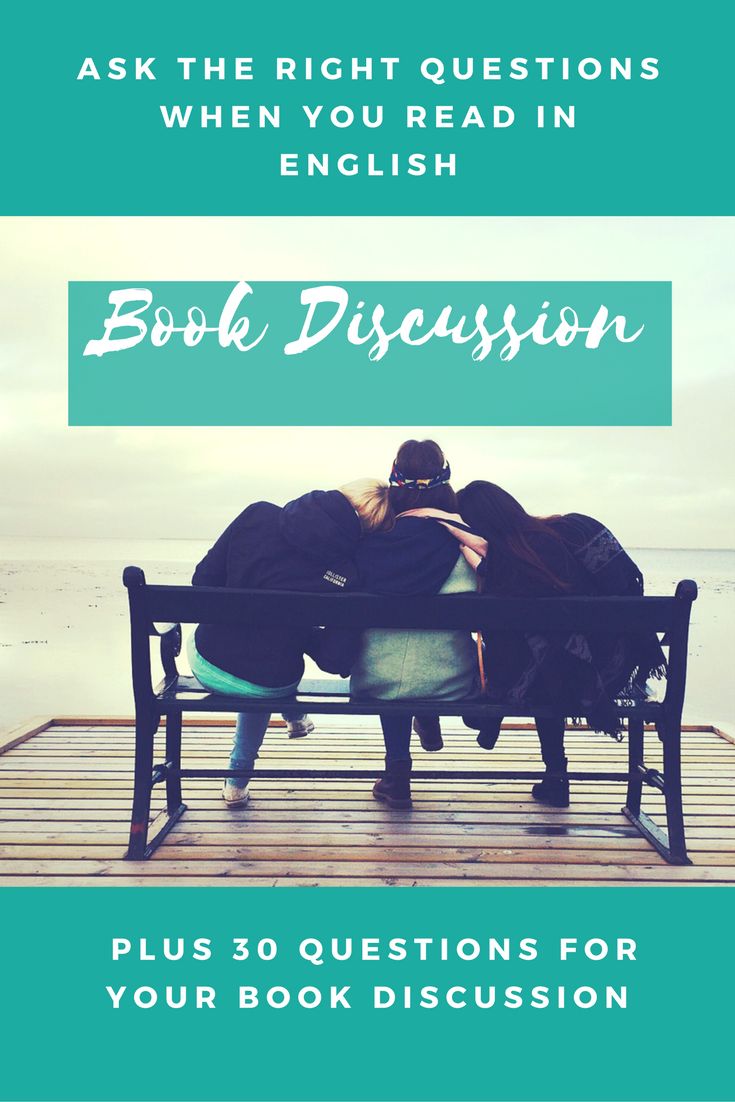Whether you’re reading books, novels, short stories in English, keep this in mind.
It’s not about having all the answers. It’s about asking all the right questions.
Think about why you are reading in English when it’s not your first languageMaybe it’s because
Reading is part of who you are and you want to enjoy books in English like you do in your native language
You want to understand more in English and you want to learn more vocabulary
You know that reading is a path to expressing yourself better in English.
Asking the right questions while you read is a way to achieve your goals.
Why ask questions while you read books in English?
One: asking questions will help you understand.
Have you ever taken a foreign literature class--or any literature class, for that matter? You’ll notice that your teacher or professor will often give you questions to answer. And these questions will help you to
Understand difficult or ambiguous parts of the story
Focus on what’s really unique or important about the story, the writing or the style, what the story says about a culture, society. . .
But when you ask questions youreself, you take understanding the story into your own hands.
You’ll become your own teacher.
Two: asking questions helps you take more away from the story.
Did you know that asking questions is much more difficult than answering them?
You have to decide what parts of the story are ambiguous. You have to decide what’s important or remarkable in the story or the writing. You have to decide what strikes you the most.
What happens when you do the hard work of deciding for yourself what matters?
You remember more of everything you read, more of your experience, more of the vocabulary and expressions. All of it.
Three: Asking your own questions helps you write the story yourself.
Have you ever noticed that the best writers give you just enough information? They show you what is going on, but they let you figure things out on your own.
You have to infer, guess, decide what the story means. For example:
- You know how a character you care about is feeling based on her words, expressions, actions
- You guess at where a story takes place as you see how people dress, how they eat, as you look at their religion
When you read in English, you become a storyteller in English!
I think that all this story-telling is what makes reading so great for your English. Reading is not a 'passive' activity.
And when you ask your own questions, you decide what matters in the story, and how you want the story to change you--as a person and as a speaker of English.
Four: Asking questions gets you ready to discuss what you’ve read!
Signed up for the email list? This short guide of 30 questions for your book club is in your inbox.
You can sign up to receive my free materials here:
Look, I mean, reading books is wonderful. It’s fun, it’s therapeutic. But having someone else to discuss them with? That’s just amazing.
Discussing the story with other book lovers is like writing the story together. It’s like taking a trip with a bunch of friends.
And coming to the conversation with some really great questions is a way to make that discussion memorable. It’s a way to talk about your shared experience.
Your questions will get you thinking--You may be surprised by what you have to say--and by how you say it.
Ready to ask some questions?
One of the most interesting and rewarding aspects of a book club is what other people have taken away from the book.
To me, the goal is to get people to talk!
You’ll want most of your questions to be open-ended. Questions that you can’t answer with one word or a simple ‘yes’ or ‘no.’
You’ll want to ask questions that make people explain themselves and their ideas, give their opinion, relate their experiences.
You can use my short guide of 30 questions to inspire you. Change them, make them your own.
Or wing it! And surprise me with new questions I've never thought of. I love that!
If you’ve already signed up for my mailing list, check your inbox for a list of sample questions. If you want to sign up, you can click here to go to the signup page.
I can’t wait to see your questions--and discuss them in the book club.



